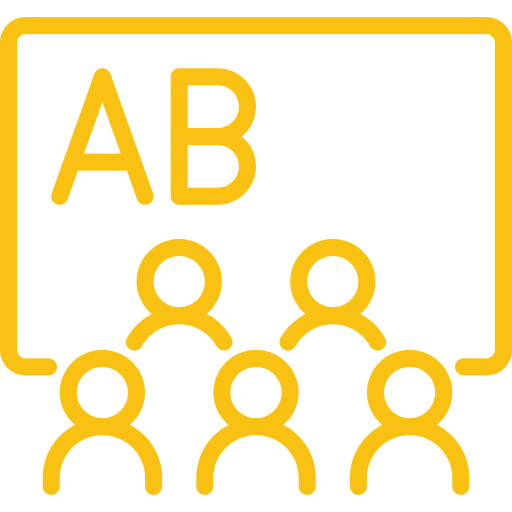Exploring the landscape of parental involvement in academic performance, this piece sheds light on a crucial factor shaping students’ educational journeys. Throughout their educational path from kindergarten to twelfth grade, guardians are instrumental in navigating and bolstering their offspring’s scholarly explorations. We’ll dive into actionable strategies for enhancing parent-child interactions, understanding the mediating influence of student-teacher relationships, and overcoming socioeconomic barriers that may hinder parental engagement.
Diving deeper, we’ll explore how sustained involvement from families doesn’t just elevate current scholastic achievements but also lays a solid foundation for enduring success in students’ academic and personal growth. Moreover, we’ll explore hands-on methods for schools to build bridges of dialogue with households and orchestrate welcoming gatherings that motivate participation from all parents. By the end of this read, you’ll have gained insights into making meaningful contributions to your child’s education journey.
The Crucial Role of Parental Involvement in Academic Performance
Think back to your school days. Did it feel like your parents were more invested in your academic life than you? If that’s the case, it’s likely they were key architects in constructing the foundation of your achievements. Research has found that a child’s academic voyage becomes notably less turbulent and far more rewarding when their guardians immerse themselves in the learning process right from preschool to the brink of college.
Research underscores the power of parent involvement as consistently linked with higher levels of academic performance. It’s not just about attending PTA meetings or signing report cards; it’s about being actively engaged in what makes up their child’s learning environment.
Early Education and Parental Engagement
In those tender early years, engaging with young minds can set them on an impressive trajectory toward academic achievement. Whether it’s reading bedtime stories or turning grocery shopping into a math lesson, these actions reinforce learning everywhere—not just within classroom walls.
This engagement continues to play a critical role as children step into elementary school and beyond. Here lies an opportunity for schools to create inclusive events that welcome all families—breaking down barriers and fostering strong relationships between home and school.
High School Success Through Active Parental Roles
Moving onto high school—a time when teens might think they know everything—parental support remains crucial but evolves. Now it’s less about direct involvement in homework and more about open communication regarding goals, challenges, and aspirations.
Surely enough, by maintaining this supportive backdrop at home, evidence shows a full circle moment: students achieve better academically because parental involvement has encouraged resilience against obstacles while championing continuous growth.
Strategies for Enhancing Parent-Child Interactions in Learning
Imagine your kitchen turning into a mini classroom where every meal prep session doubles as a math lesson. Embracing such inventive approaches is essential for delving further into the educational journeys of our kids. With intervention programs showing promising results in bridging gaps, it’s high time parents rolled up their sleeves.
Creating Inclusive School Events
School events shouldn’t feel like an exclusive party where only a few get the golden ticket. They should welcome everyone with open arms, from those who can solve algebra problems faster than you can say ‘pi’ to families facing hurdles due to socioeconomic status. Adopting this all-embracing strategy not only cultivates a community vibe but also notably enhances the educational achievements of learners.
A fun fact: involvement in school activities is directly linked with better grades and happier kids. Who knew that attending that bake sale could help boost your child’s academic success?
Encouraging Active Participation in Learning at Home
We’ve all been there – trying to juggle work, home duties, and then adding homework helper to our resume. But here’s the kicker: engaging in your child’s education doesn’t have to be another chore on the list. Simple actions like reading together or discussing what they learned at school can increase children’s cognitive competence dramatically.
This interaction isn’t just good for their brains; research has shown the relationship between parent involvement and standardized achievement test performance accordingly. So yes, asking about their day does more than just fill awkward dinner silences. Not that standardized testing is a high point of children’s academic achievement, but it doesn’t completely hurt either.
The Mediating Role of Student-Teacher Relationships
Imagine the classroom as a mini-universe where each student orbits around their own little planet of learning. Now, what if I told you that parental involvement is like gravity in this universe? Parental engagement acts as the gravitational force, binding these educational spheres to prevent them from drifting into academic oblivion. This isn’t just a hunch; it’s backed by solid research showing how positive student-teacher relationships, fueled by parent involvement, can seriously boost academic performance.
A study detailed on ResearchGate confirms something pretty cool: when parents get involved in education, teachers see their students in a more favorable light academically. Yes, you heard right. The bond between your kid and their teacher doesn’t just make school feel less like a chore for them; it directly influences how well they do there.
This isn’t some magical occurrence that just materializes. Teachers report better classroom academic performance when they share strong connections with their students—a connection significantly strengthened by an involved parent or guardian at home. So what’s happening here? These nurturing bonds between educators and learners act as a vital bridge, linking family involvement directly to academic achievement.
To boil it down: think of yourself not just as your child’s cheerleader but also as the key to unlocking an invaluable alliance with educators—one that stands to shape your child’s educational journey profoundly.
Overcoming Socioeconomic Barriers to Parental Involvement
Socioeconomic status shouldn’t be the villain in our story of parental involvement. But let’s face it, sometimes life feels like a game where the rules aren’t exactly fair. Imagine trying to support your child’s education while juggling two jobs or figuring out transportation without a car.
In reality, each household navigates through its own maze of difficulties. Yet, there’s this wide range of possibilities for parents and guardians to jump over these hurdles with some creativity and resourcefulness. Think about it: being involved doesn’t always mean showing up physically at school events.
Creating Inclusive School Events
For starters, schools can play hero by designing inclusive events that consider various schedules and modes of participation. Ever heard of virtual parent-teacher conferences? They’re not just pandemic relics but lifelines for those who can’t attend in person due to work or lack of transport.
Beyond traditional meetings, why not livestream performances or create digital galleries showcasing students’ work? This way, everyone gets a front-row seat regardless of their socioeconomic status.
Encouraging Active Participation in Learning at Home
Taking an active role doesn’t need fancy gadgets either. Simple activities like reading together before bedtime or discussing what they learned each day can significantly boost learning outcomes—and don’t cost a dime.
Leveraging online resources also bridges gaps efficiently. There are countless free educational platforms where children can practice math skills or explore science experiments with household items under parental guidance—turning kitchen tables into classrooms.
I teach consumer economics, and believe that the best way to support students in my classroom is to encourage my students to take their lessons home and discuss them with their parents. It’s amazing how many behavior problems go away when the students realize that everything we’re learning really will impact their lives. Many of my families face hard economic decisions, and getting the parents to engage can help the students avoid economic issues we’ve all had at some point.
In essence, overcoming socioeconomic barriers requires thinking outside the box—but within reach—to ensure all families have equitable opportunities to engage in their children’s academic journey. Research highlights how crucial this engagement is for student success across all grades; hence why we must strive for inclusivity and accessibility above everything else.
Longitudinal Impact of Family Engagement on Academic Achievement
If you thought family game night was just about fun, think again. Interestingly, when parents dive into the educational journey alongside their children, it often leads to triumphant academic milestones over time. And we’re not just talking spelling bees.
And many of those games you play together at home teach young children more than you think, challenging them increases academic outcomes as well.
A deep dive into studies examining parent involvement reveals a goldmine: consistent family engagement isn’t just good vibes—it’s linked to stellar educational outcomes. From helping with homework to attending school events, every bit counts towards boosting those grades.
Early Education and Parental Engagement
In the sandbox stages (aka early childhood), active participation from mom and dad lays down the bricks for academic prowess. It’s like building a Lego castle—every block matters. Engaging families during these formative years fosters an environment ripe for learning growth spurts. And if you think you’re too old for Lego’s, I’m guessing you are well within age limits on the box.
And it doesn’t stop after they’ve outgrown their baby shoes. As kids transition from singing ABCs to solving algebra equations, having an involved parent or two by their side keeps them motivated through each chapter of their school saga—even when calculus looks more alien than arithmetic once did.
High School Success Through Active Parental Roles
Flying through high school can feel like navigating a teenage drama without a script for both students and parents alike. But here’s where the plot thickens—involvement at this stage is crucial too. Supporting your teen through SAT prep or cheering them on at sports meets does wonders for self-esteem—and yes, test scores too.
Schools that open doors wide enough let families step right into the heart of education foster stronger communities and higher levels of student achievement because everyone plays part in scripting success stories—one parental pep talk at a time.
Engaging Parents in Elementary School Activities
Getting parents involved in elementary school activities is like trying to get a cat into a bathtub – it requires strategy, patience, and sometimes just the right lure. But why bother? Well, studies link parent involvement in school events with higher levels of student achievement. That’s no small potatoes.
Creating Inclusive School Events
Schools need to throw open their doors wider than ever before. Creating inclusive events means ensuring every family feels welcome, regardless of background or language barriers. Crafting an invitation is just the beginning; it’s about designing experiences that touch every family’s heart, irrespective of their roots or the languages they speak.
To make this happen, schools can host multicultural nights celebrating different cultures present within the school community. Another hit could be workshops where parents share skills or hobbies – turning the school hallways into vibrant hubs of communal learning.
The key is designing these events not as one-offs but as integral parts of the school year that build strong relationships between families and educators work wonders for everyone involved.
It can be hard for teachers to make it to many of these events, they have their own families at home, not just a school family. That being said, whenever it is possible to have a child’s teacher interact with parents and students outside of school, it will influence academic achievement as well. Those bonds are simply priceless.
Encouraging Active Participation in Learning at Home
Tips for extending learning beyond classroom walls are gold dust for eager parents wanting to play an active role in their child’s education journey from early childhood through high school achievements. Letting kids see educational activities as part of daily life rather than homework helps them connect learning with living – think cooking together while practicing fractions or stargazing on clear evenings while discussing constellations.
Time and again, it’s been demonstrated that students thrive academically when schools successfully draw parents into the educational process, creating a magical synergy. Some of us just need to let go of being the end-all-be-all for information, as long as the students are learning then the credit for success doesn’t really matter.
Effective Communication Between Schools and Families
Open communication isn’t just a buzzword; it’s the secret sauce that makes the educational meal deliciously successful. It stands at the core of identifying and addressing students’ needs effectively, but let’s be honest, sometimes it feels like trying to solve a Rubik’s Cube in the dark. And I wasn’t good at doing them during the daytime.
To span this chasm, educational institutions require tactics that are both ingenious and utilitarian in nature. For starters, think about creating an online portal where parents can peek into their child’s academic life without feeling like they’re intruding. This often includes access to grades, homework assignments, and even teacher feedback. The main component missing is the social emotional part of the puzzle. Imagine turning “How was school today?” from a dead-end question into a lively dinner table discussion about soft skills they demonstrated that day.
In addition to the world of online information, the value of face-to-face conversations can’t be overstated. Parent-teacher conferences shouldn’t be the only time families get face-time with educators. Hosting informal meetups or workshops can demystify what happens during school hours and let parents share their insights too.
Promoting Educational Equity Through Parental Involvement
Imagine a world where every child, regardless of their background, has an equal shot at academic success. Sounds like a dream? Well, it’s more achievable than you think with the right mix of parental involvement and school improvement strategies.
African American children and those from various backgrounds often face unique challenges in education. But here’s the kicker: studies show that when parents get involved in their child’s education, these barriers start to crumble. It turns out; love does conquer all—or at least it makes a significant dent in educational inequity.
FAQs in Relation to Parental involvement in Academic Performance
How does parental involvement affect the academic performance of students?
Parental support boosts kids’ confidence and motivation, leading to better grades and higher test scores.
How does parent involvement affect school students?
Kids with involved parents show improved behavior, attendance, and social skills at school.
How does the parent child relationship affect academic performance?
A strong bond fosters a love for learning. It makes tackling tough subjects easier for kids.
What is the impact of parental expectations on academic performance?
Kids aim higher when their parents expect more. This ambition often translates into scholastic success.
Conclusion
Parental involvement in academic performance is a game-changer. Digging deeper into your kid’s educational path can significantly illuminate their prospects.
Remember this: Engaging early and often sets them up for success. From reading together to attending school events, every moment counts.
Keep in mind: Building strong relationships with teachers can significantly impact your child’s classroom experience. It’s all about teamwork.
And don’t forget: Challenges like socioeconomic barriers aren’t roadblocks but hurdles you can leap over with the right strategies and support systems in place.
Essentially, forging a luminous future in education for your offspring hinges on active participation at each juncture. Let’s make it happen!
If you are looking to learn more, consider taking one of our graduate classes here at MTI. We offer the most affordable graduate classes on the market, developed by real teachers.
Unlike other companies, we have zero hidden costs, and we provide the syllabus before you sign up. Some surprises are good, but they shouldn’t involve your money or time.
And if you’re interested in teaching with us, feel free to reach out via any of our social media links, or send an email to [email protected] for more details.





















